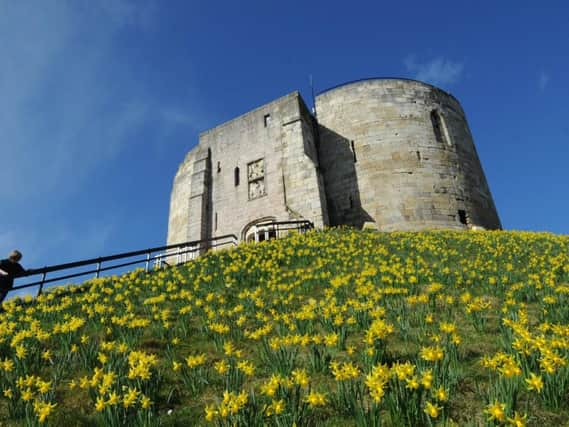Campaigners lose challenge over visitor centre plan for Clifford's Tower in York


English Heritage wants to build the centre below the 13th-century Clifford's Tower, in York, at the base of its green motte, which features in countless images of the city.
York goes to battle again over Clifford’s TowerLast year York City Council approved the plan for a gift shop and interpretation centre, which also includes new stairs up to the castle and a range of improved visitor features inside the keep.
Advertisement
Hide AdAdvertisement
Hide AdThe decision was challenged by a group of local residents led by independent city councillor Johnny Hayes in an application for judicial review at the High Court in Leeds.
But Mr Justice Kerr on Friday rejected all grounds of challenge as he handed down his judgment in London.
The judge ordered Mr Hayes and the residents to pay £5,000 towards the City of York's legal costs incurred defending the plan.
They were refused permission to appeal on the grounds that they had "no real prospect of success", but were given 14 days to ask the Court of Appeal direct to consider their case.
Advertisement
Hide AdAdvertisement
Hide AdClifford's Tower is the last remaining part of York Castle, which was once the focus of royal power in the north of England.
In 1190 it was the site of one of the most notorious incidents in English history, when about 150 Jews were massacred after taking refuge in the tower.
The judge said the new plans for the tower, which included archaeological works and disturbance to buried artefacts, had sharply divided local opinion.
He said Mr Hayes had been described by his QC Anthony Crean "as a tribune of the people in the finest traditions of local democracy".
Mr Hayes had argued the planning proposals were harmful.
Advertisement
Hide AdAdvertisement
Hide AdHe contended there had been a failure to identify and assess the significance of Clifford's Tower and its setting and planning guidelines had been misinterpreted.
Rejecting all grounds of challenge, the judge said of the project: "The perceived public benefits were considered substantial, even though the proposals generated substantial opposition.
"The supporters of the proposal included the statutory body with responsibility for preservation, Historic England, and its managing agent, English Heritage.
"The project enjoyed the support of the city council, in the person of its most senior officers with professional responsibility for heritage matters."
Advertisement
Hide AdAdvertisement
Hide AdThe judge said that even if the planning permission had been flawed in either of the ways suggested by Mr Hayes, the court would have refused to intervene and block it.
Mr Hayes raised money for the judicial review bid through a crowdfunding site after more than 3,000 people signed a petition against the development.